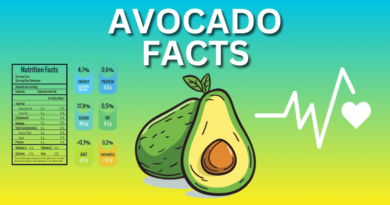Good Nutrition: Your Key to Vibrant Health
Good nutrition is the cornerstone of maintaining vibrant health and overall well-being. By making conscious choices about what we eat and prioritizing nutrient-dense foods, we can achieve optimal health and support a healthy lifestyle.
A balanced diet and proper nutrition play a crucial role in nourishing our bodies and providing them with the essential nutrients they need to function at their best. Clean eating and following nutritional guidelines can help us maintain the energy levels we need to thrive.
In this article, we will delve into the importance of good nutrition and provide practical tips on how to incorporate it into your daily life. From understanding the benefits of plant-based foods to discovering the nutrients that support brain health and protect your heart, we’ll explore the impact of nutrition on your overall well-being.
Key Takeaways on Good Nutrition:
- Good nutrition is essential for vibrant health and overall well-being.
- A balanced diet and proper nutrition provide the necessary nutrients our bodies need.
- By making informed choices and prioritizing nutrient-dense foods, we can support a healthy lifestyle.
- Plant-based foods are the foundation of good health, rich in essential nutrients and antioxidants.
- Nutrients found in certain foods, such as dark chocolate, leafy greens, fruits and berries, nuts and fish, and olive oil, support brain health.
The Foundation of Good Health: Plant-Based Foods
When it comes to good health, plant-based foods are the key. Packed with essential nutrients like antioxidants, fiber, and micronutrients, colorful fruits and vegetables provide the necessary vitamins and minerals your body needs to thrive. These nutrient-dense foods support a stable and healthy microbiome, which is crucial for overall well-being.
Studies have shown that incorporating plant-based foods into your diet can have numerous health benefits. They have been linked to improved heart health, a lower risk of diseases, and enhanced immune function. By prioritizing plant-based foods, you can nourish your body with the nutrients it craves and promote optimal health and vitality.
One reason plant-based foods are so beneficial is their rich antioxidant content. Antioxidants help protect the body against oxidative stress and free radicals, which can cause cell damage and contribute to various diseases. By consuming colorful fruits and vegetables, you can significantly increase your antioxidant intake and support your body’s natural defense system.
Fiber is another essential component found abundantly in plant-based foods. It aids in digestion, helps regulate blood sugar levels, and promotes a feeling of satiety, making it easier to maintain a healthy weight. By incorporating a variety of fruits, vegetables, whole grains, and legumes into your meals, you can ensure you’re getting an adequate amount of fiber and supporting your digestive health.
Plant-based foods are also rich in a wide range of micronutrients, including vitamins, minerals, and phytochemicals. These micronutrients are vital for various bodily functions and can support everything from immune function to bone health. By consuming a diverse array of plant-based foods, you can provide your body with the essential micronutrients it needs for optimal performance.
The Benefits of Plant-Based Foods:
- Improved heart health
- Reduced risk of diseases
- Enhanced immune function
- Increased antioxidant intake
- Better digestive health
- Support for overall well-being
By incorporating an abundance of plant-based foods into your diet, you can enjoy the numerous benefits they offer. Whether it’s adding colorful fruits and vegetables to your plate, experimenting with new plant-based recipes, or exploring the wide range of whole grains and legumes available, there are plenty of delicious and nutritious options to choose from. Start building the foundation of good health today by embracing plant-based foods as a cornerstone of your diet.
Nutritional Support for Brain Health
Proper nutrition plays a vital role in maintaining optimal brain health. A diet rich in brain-boosting nutrients can support cognitive function and promote the growth of new brain cells. To nourish your brain, consider incorporating the following foods into your daily diet:
Dark Chocolate
Dark chocolate contains flavonoids and antioxidants that can improve blood flow to the brain, enhance cognitive function, and protect against age-related decline.
Leafy Greens
Leafy greens like spinach, kale, and broccoli are packed with vitamins and minerals that support brain health. They are rich in folate, vitamin K, and antioxidants.
Fruit and Berries
Fruits and berries, such as blueberries and strawberries, are high in antioxidants and can reduce inflammation in the brain, improving memory and cognitive performance.
Nuts and Fish
Nuts, such as almonds and walnuts, are rich in omega-3 fatty acids and antioxidants that support brain health. Fatty fish, like salmon and sardines, are also excellent sources of omega-3 fatty acids.
Olive Oil
Olive oil is a key component of the Mediterranean diet, which has been associated with improved brain function and a lower risk of cognitive decline. It contains monounsaturated fats and antioxidants.
By including these nutrient-rich foods in your diet, you can support brain health and enhance cognitive function. Remember to maintain a balanced diet and consult with a healthcare professional for personalized nutritional advice.
Nourishing Your Body and Protecting Your Heart
Good nutrition plays a crucial role in promoting bone health and protecting your heart. By adopting a plant-based diet that includes essential nutrients and incorporating specific foods into your daily routine, you can support the well-being of these vital organs.
Promoting Bone Health With Good Nutrition
To maintain a healthy skeleton, it is essential to prioritize bone health through proper nutrition. Consuming a plant-based diet that is rich in protein, vitamin D, and vitamin K2 can contribute to the development and maintenance of strong bones. These nutrients can be obtained from a variety of sources, including:
- Legumes, such as lentils and chickpeas, which provide plant-based protein and are rich in bone-building minerals.
- Leafy greens, like kale and spinach, that are high in calcium and vitamin K, necessary for bone mineralization.
- Fortified plant-based milk alternatives, which offer vitamin D, a nutrient crucial for calcium absorption and bone health.
In addition to these dietary choices, supplementing with collagen can further support bone health. Collagen is a protein found in bones and cartilage, and taking collagen supplements can help strengthen and protect your skeletal system.
Promoting Heart Health
Your heart health can also be enhanced through proper nutrition. Including foods rich in monounsaturated fats and omega-3 fatty acids in your diet can play a significant role in promoting heart health. Consider incorporating the following foods into your meals:
- Nuts, such as almonds and walnuts, which contain monounsaturated fats that have been shown to support heart health and reduce the risk of cardiovascular diseases.
- Seeds, like chia and flaxseeds, which provide omega-3 fatty acids and can help lower blood pressure and reduce inflammation.
- Avocado and olive oil as additional sources of monounsaturated fats, beneficial for heart health and overall well-being.
Incorporating green tea into your daily routine can also have positive effects on heart health. Green tea contains antioxidants called catechins, which have been shown to help lower cholesterol levels and reduce the risk of heart disease.
By prioritizing bone health and heart health through a nutritious diet that includes these essential nutrients, you can support the overall well-being of your body.
Conclusion
Making healthy choices is the key to achieving and maintaining vibrant health. While everyone’s nutritional requirements may vary, certain dietary steps can benefit most individuals. Prioritizing nutrient-dense options and filling any nutrient gaps in your diet through proper meal planning and supplementation is crucial.
Consider adopting the Mediterranean diet, which has been linked to numerous health benefits, including weight management and disease prevention. This eating pattern emphasizes whole foods, such as fruits, vegetables, whole grains, legumes, and lean proteins, while limiting processed foods and unhealthy fats.
Additionally, creating a food shopping list can help you stay organized and ensure you have the necessary ingredients to prepare healthy meals efficiently. By focusing on whole, fresh foods and avoiding impulse purchases of sugary snacks or processed items, you can support your healthy lifestyle goals.
Remember, it’s always a good idea to consult with a healthcare provider or registered dietitian for personalized nutritional advice and guidance. They can help assess your specific needs and provide recommendations tailored to your individual goals and health conditions.


